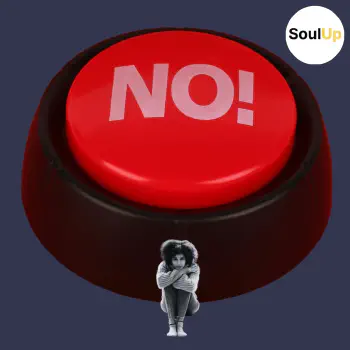Group Type: Support Group
Goals of the Group:
🔹 Build awareness of how RSD manifests in thoughts, emotions, and behaviors. 🔹 Develop tools to regulate emotions and reduce distress caused by rejection sensitivity. 🔹 Learn healthier ways to respond to criticism, perceived failure, and social interactions. 🔹 Foster self-compassion and a sense of agency in relationships and personal growth.
Who Is The Group For?
This group is for individuals who: 🔹 Experience intense emotional reactions to perceived or real rejection, criticism, or failure. 🔹 Struggle with emotional overwhelm and self-criticism. 🔹 Want to build self-compassion and healthier boundaries. 🔹 Seek a safe, validating space to connect with others who understand RSD.
Discussion Topics:
🔹 Understanding RSD and its emotional intensity. 🔹 Managing the inner critic and shame spiral. 🔹 Emotional regulation and distress tolerance. 🔹 Navigating relationships and setting boundaries.
What Will We Talk About?
🔹 Personal experiences of rejection sensitivity and its impact. 🔹 Tools for emotional regulation and self-compassion. 🔹 Differentiating real vs. perceived rejection. 🔹 Assertive communication and boundary-setting strategies.
Glimpse of the Session:
Session 1: Understanding RSD & Its Emotional Intensity 🔹 Psychoeducation on RSD, its connection to ADHD, trauma, and emotional dysregulation. 🔹 Exploring personal experiences of rejection sensitivity. 🔹 Identifying personal triggers and emotional patterns. 🔸 Takeaway: Self-awareness worksheet.
Session 2: Managing the Inner Critic & Shame Spiral 🔹 Exploring the inner critic and its role in fueling RSD. 🔹 Introduction to self-compassion and emotional self-soothing strategies. 🔹 Group sharing of coping tools and challenges. 🔸 Takeaway: Self-compassion scripts and critic-naming exercise.
Session 3: Building Emotional Regulation & Distress Tolerance 🔹 Introduction to grounding, mindfulness, and distress tolerance skills. 🔹 Creating personalized emotional first-aid toolkits. 🔸 Takeaway: Emotional regulation checklist.
Session 4: Navigating Relationships & Setting Boundaries 🔹 Differentiating real vs. perceived rejection. 🔹 Practicing assertive communication and healthy boundaries. 🔹 Reflection on progress, closure, and forward planning. 🔸 Takeaway: Personalized boundary scripts and group reflections.
Please note: The session topics, order, and other details may be subject to change based on the needs and preferences of the group members and facilitators.
Facilitator Bio:
Dr. Rachel Jayaseelan is a psychologist and practitioner based in Bangalore. A Christ University alumna, she also taught there for seven years in the Department of Psychology, guiding students in assessments and case supervision. She is certified in NLP, Career Counselling, Cognitive Analytic Therapy, Solution-Focused Brief Therapy, Master Level Hypnosis, and is also a Sleep Consultant and Emotional Intelligence Specialist. With her eclectic approach, she designs tailor-made therapeutic plans to maximize benefits for clients.
In her practice, Dr. Rachel focuses on psychological and educational assessments at the Reach Clinic, Bangalore, having worked with over 2,500 clients in the past nine years. Her expertise lies in screening and diagnostic testing for developmental delays, learning difficulties, ADHD, and behavioral or emotional disorders in children. She also works with pre-marital relationships, with her doctoral research centering on relationship security.
Dr. Rachel has conducted 200+ workshops on communication, decision-making, mindfulness, anxiety, depression, and healthy relationships, and has partnered with organizations such as IBM, LinkedIn, YES BANK, Royal Enfield, and more. She has been featured in Times of India and Deccan Herald, and runs Wellness Within, her own mental health platform offering awareness initiatives and affordable therapy for students and young professionals.


